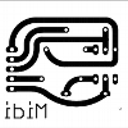-
 dwan
posted in news • read more
dwan
posted in news • read more@60hz said:
Any error messages in terminal?
Erreur de segmentation (core dumped)
Did you run the script inside: Ofelia/scripts/Linux64/updateOF.sh ?
There is no Linux64 folder inside of the scripts folder. I just installed Ofelia via Deken, and i don't need OfxOfelia to use the lib inside Pd, do I ?
You can also create an issue here: https://github.com/cuinjune/Ofelia/issues
Yes I know, i just figured i'd ask here first. Thanks !
-
-
 dwan
posted in this forum • read more
dwan
posted in this forum • read moreSomeone in the facebook pd group reports not receiving his confirmation email. Spam folder checked, etc. https://www.facebook.com/groups/puredata/permalink/10156627438764495/
-
 dwan
posted in technical issues • read more
dwan
posted in technical issues • read more-
You should use Pd vanilla + needed externals. Pd-extended is not maintained anymore, which means that should you encounter bugs with it (and there are), they won't be corrected, like, ever.
-
This is not how you bypass a filter. Remember that toggles can take 2 values, 0 and another one (typically 1) when clicked. Your slider sends a float to the atom, which sends the float to the toggle, which hands it to the [hip~], which understands the float as a frequency value to set the filter. When you click the toggle, it sends a zero, which sets the hi-pass filter to zero hertz and thus gives the wrong impression that it's bypassed when actually you just set it to its lower value. Eventually, this trick doesn't work with [lop~], because a low-pass filter set at zero hertz acts almost like a mute button.
-
Then, how to bypass signal object ? You have to come out with a way to make the signal go to your filter OR to the next object.
See this example of how to do this. This is only one way to do, there are many : bypass-example.pd
PS : i was very intrigued by this behaviour of [tgl] that would alternate between zero and the last non-zero value that went through. I remembered seeing this a long time ago... Eventually, this behaviour was ditched with 0.46 but we still have a compatibility mode. Another reason to let Pd-extended go, i guess !
-
-
 dwan
posted in technical issues • read more
dwan
posted in technical issues • read more[vline~] can process different ramps inside of a block (whereas [line] and [line~] are bound to the block boundaries), and can even start and stop ramps in-between samples (cf. help file). So i guess that if you send the right message with the right succession of ramps, it's ok !
-
 dwan
posted in technical issues • read more
dwan
posted in technical issues • read moreIf you want to be very explicit (and almost pd-pedantic
 ), use [+~}.
), use [+~}.
But really, no one (?) does this, and you can just connect each source directly to the filter which will take care of the adding process. -
 dwan
posted in technical issues • read more
dwan
posted in technical issues • read more@greycat Well, it alls depends on what you want to achieve :
-
if you multiply [osc~] output with another signal [0;1], you make its amplitude vary between nothing and full amplitude
-
if you add [+~ -0.5] to a [phasor~], you basically remove the DC component of the ramp oscillator
-
if you multiply the output of two [osc~], you're doing Amplitude Modulation (AM)
-
if you add the output of two [osc~], you're doing additive synthesis
-
-
 dwan
posted in patch~ • read more
dwan
posted in patch~ • read more@whale-av said:
@ketchupee1 like this.......... golf.pd
It is all in the message order...... http://puredata.info/docs/manuals/pd/x2.htmYour patch does not give an output on each bang

But your reference to the manual gives the solution that i used, and even a [del 0] would work !
it is legal to make a loop if there is a "delay" object somewhere in it. When the "delay" receives a message it schedules a messsage for the future (even if the time delay is 0) and is then "finished;" Pd's internal scheduler will wake the delay back up later.
-
 dwan
posted in technical issues • read more
dwan
posted in technical issues • read moreYou need to install the development version of alsa and jackd. Usually, if i'm not mistaken, it's something like libasound2-dev and libjack-jackd2-dev.
-
 dwan
posted in technical issues • read more
dwan
posted in technical issues • read moreThis kind of curve look A LOT like a resonant low-pass (for which you can easily find biquad parameters).
-

